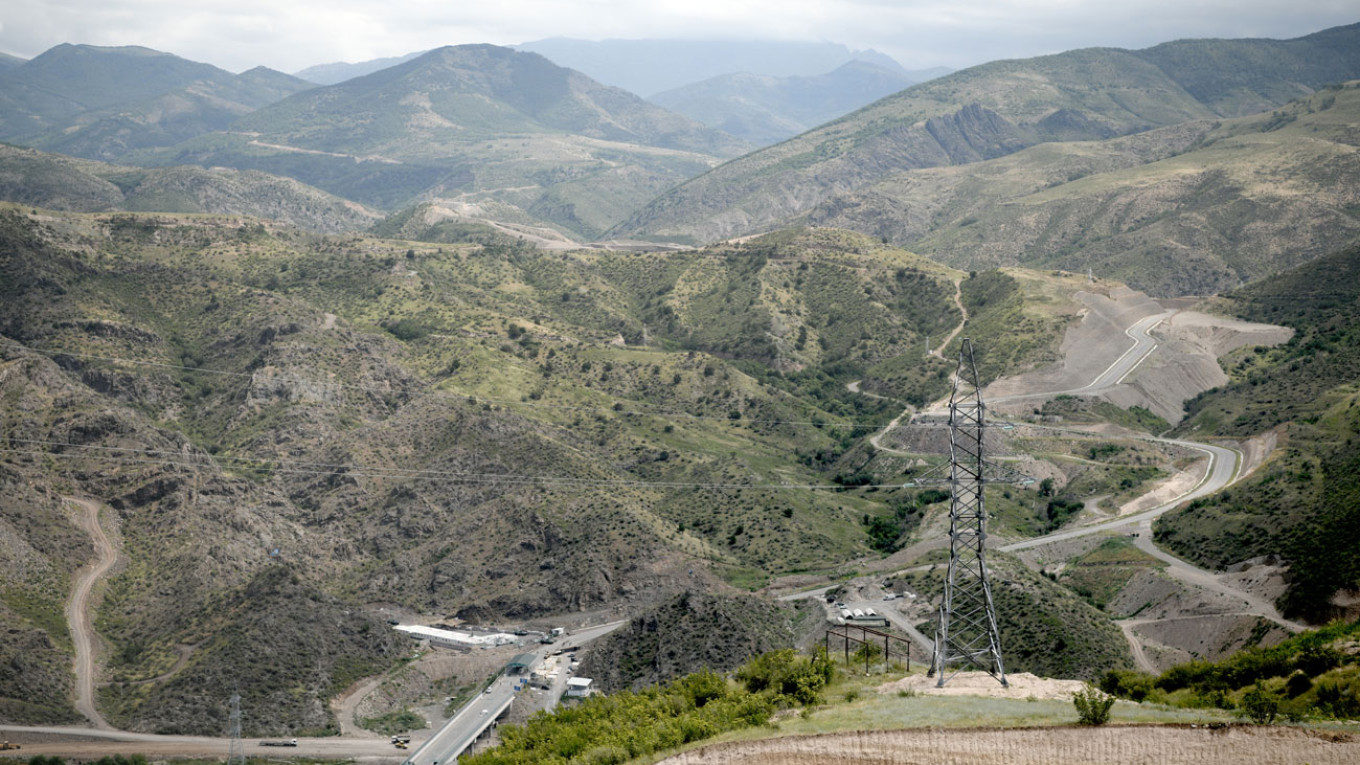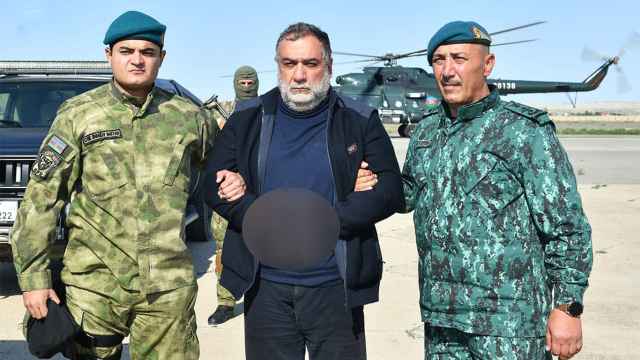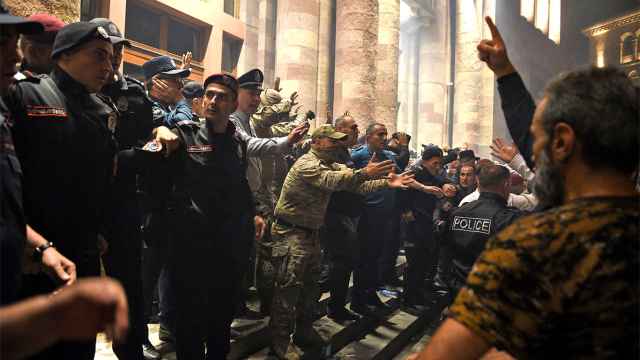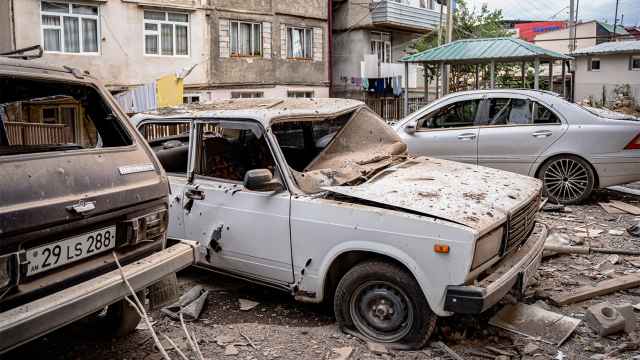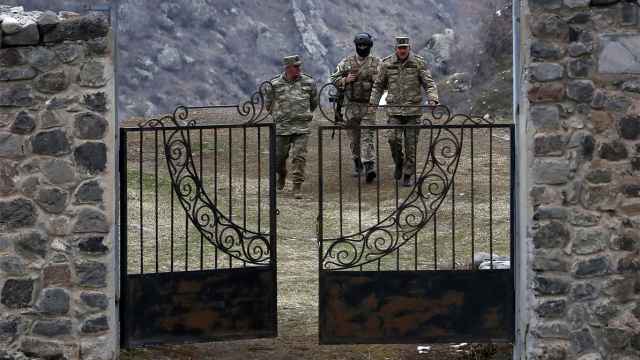Russian humanitarian aid arrived Tuesday in the breakaway region of Nagorno-Karabakh via territory controlled by Azerbaijan, separatist authorities in the Armenian-populated enclave said.
Armenia has accused Azerbaijan of spurring a humanitarian crisis in Nagorno-Karabakh by closing the single road linking the mountainous territory with Armenia.
That roadway, known as the Lachin corridor, is policed by Russian peacekeepers as part of a ceasefire agreement Moscow brokered between the two South Caucasus nations in 2020.
Baku has rejected Yerevan's claims, saying Nagorno-Karabakh could receive supplies through Azerbaijan-controlled territory.
"The Russian Red Cross's humanitarian aid was delivered to the Republic of Artsakh," the separatist government's information center said, using Nagorno-Karabakh's Armenian name.
Azerbaijan's Red Crescent confirmed the report, saying that the truck belonging to Russia's Red Cross arrived in the city of Stepanakert via the Aghdam road, which links the region with the rest of Azerbaijan.
Earlier in September, Azerbaijan agreed to simultaneously reopen both the Lachin corridor and the Aghdam road for humanitarian shipments, but said Armenian separatists rejected the proposal.
Yerevan and international aid groups have warned of dire shortages of food and medicine in the territory.
Last week, Armenian Prime Minister Nikol Pashinyan sounded alarm bells over the risk of a fresh military conflict with its neighboring, accusing Baku of massing troops along its border.
Armenia and Azerbaijan have fought two wars for control of Nagorno-Karabakh, with the last fighting in 2020 ending in a Russian-brokered ceasefire that saw Armenia cede swathes of territory it had controlled for decades.
Baku and Yerevan have been unable to reach a lasting peace settlement despite mediation efforts by the EU, U.S. and Russia.
A Message from The Moscow Times:
Dear readers,
We are facing unprecedented challenges. Russia's Prosecutor General's Office has designated The Moscow Times as an "undesirable" organization, criminalizing our work and putting our staff at risk of prosecution. This follows our earlier unjust labeling as a "foreign agent."
These actions are direct attempts to silence independent journalism in Russia. The authorities claim our work "discredits the decisions of the Russian leadership." We see things differently: we strive to provide accurate, unbiased reporting on Russia.
We, the journalists of The Moscow Times, refuse to be silenced. But to continue our work, we need your help.
Your support, no matter how small, makes a world of difference. If you can, please support us monthly starting from just $2. It's quick to set up, and every contribution makes a significant impact.
By supporting The Moscow Times, you're defending open, independent journalism in the face of repression. Thank you for standing with us.
Remind me later.


